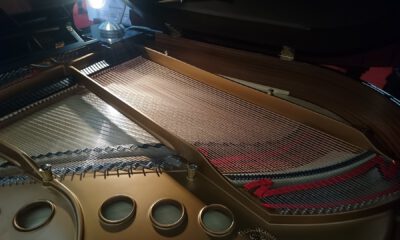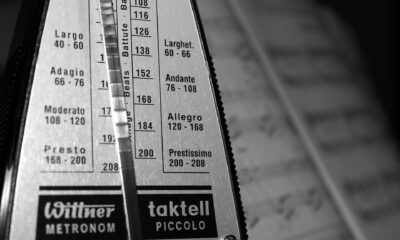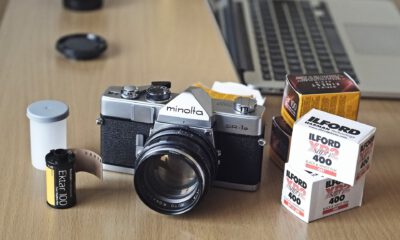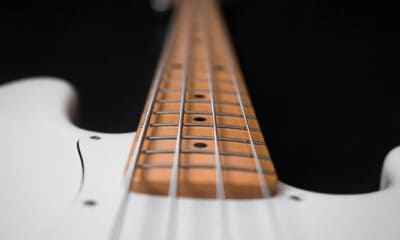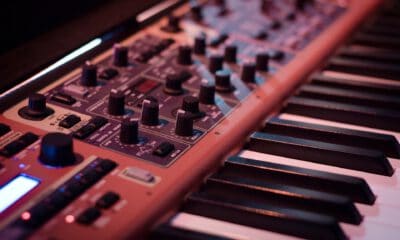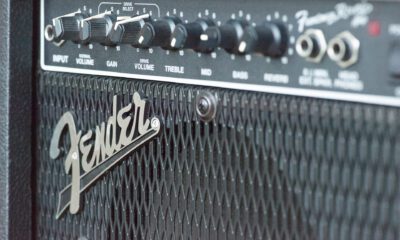Home Recording
What Are Signal Processors? (explained in 2 minutes)
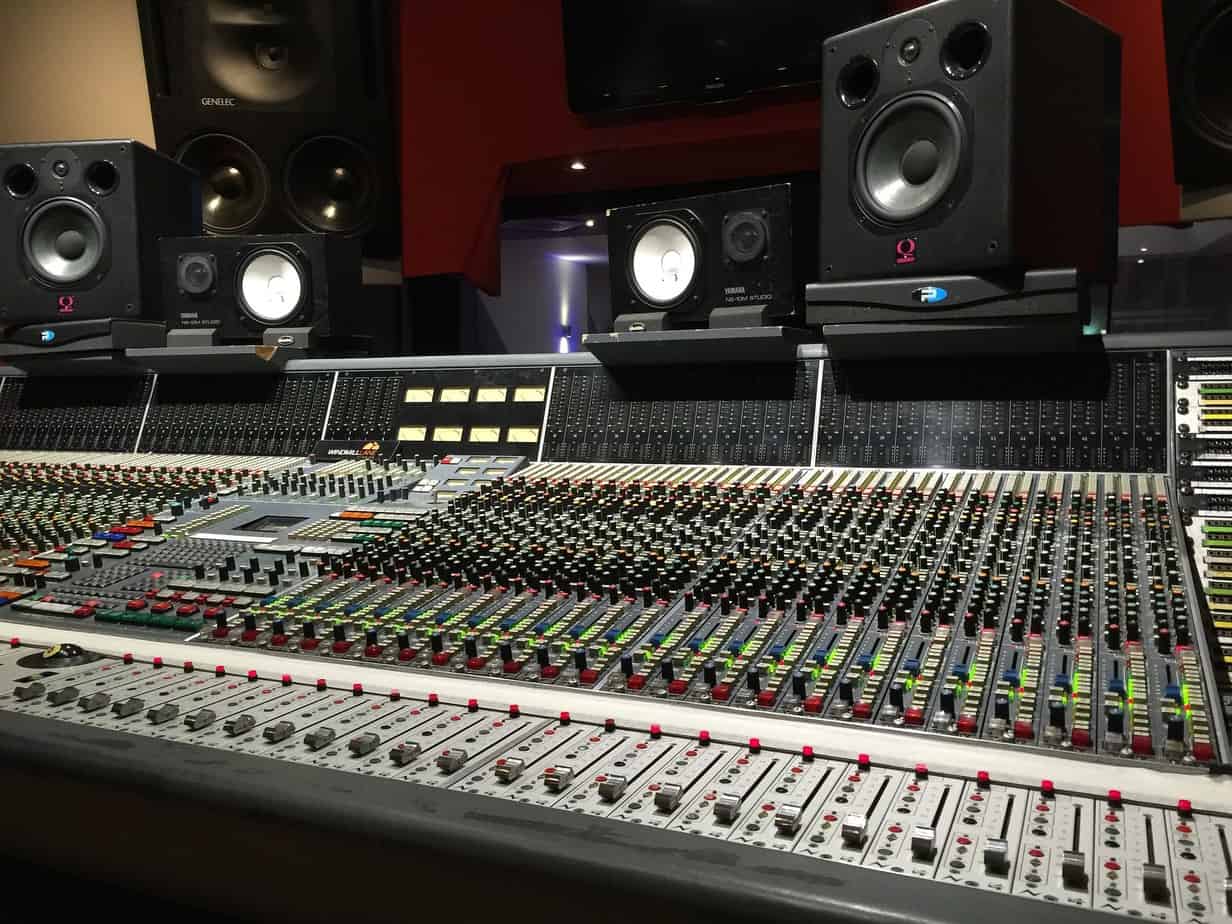
We all use signal processors all the time, but very few of us know what exactly signal processors are all about. So let’s find out in the next few minutes what signal processors are, what you need them for, and how to use them.
What are signal processors?
Signal processors change the shape of audio waves. They can be applied to all instruments and your own voice, and can be digital or analog devices. Signal processors are used to change the general sound. They are used both live (for example, on stages) and in the studio.
Of course, this is only the shortest short form of the answer. If you want to know how to use signal processors purposefully to create even better music, let’s dive deeper into the topic of “signal processors” now.
Before we get into the question of what the difference is between digital and analog signal processors, let’s first look at the most popular uses and types of signal processors.
The Equalizer
Almost all of us are familiar with the equalizer. The equalizer is a signal processor that emphasizes or softens certain frequency ranges. A well-known example of the use of the equalizer is, for example, in “bass boosting”. In this case, the lower frequencies are reproduced much louder, while the higher frequencies either remain unchanged or are even reduced to enhance the effect.
Another large area of application for the equalizer is in mixing and mastering. Here, too, the desired “sound” is created through the skilful use of emphasized frequency ranges.
If you want to learn more about the equalizer and how it works, you can watch this video:
Filters and Effects
For example, if a DJ filters out the high frequencies before a drop, this is also the use of a signal processor.
Commonly used filters and effects include reverb, echoes, or the wah filter often used in hard rock. While the wah filter is mainly used with guitars, the vast majority of filters can be used with many instruments.
Most filters and effects are used both in the studio, for example, to transport a reverb on the voice, but also live filters are often used, for example, to create more tension as a DJ before the drop.
Compressors
Compressor effects are very often used in the studio when recording. The function of compressors is to filter out extreme frequency ranges.
The reason for this is that these ranges are very often extremely unpleasant and painful to the ears. Compressors are used as signal processors to prevent albums, singles, or other recordings from containing these very frequencies, which would detract from the listener’s experience.
Noise Gates
Noise gates are used to filter out ambient noise from recordings or at concerts. The way they work is that you set a noise level above which a noise or sound should actually be reproduced. For example, if you specify a noise level of 10 decibels as the level, all sounds that do not reach a volume of 10 decibels will not be reproduced.
Noise gates have therefore had a revolutionary impact, particularly in recording technology, as noise gates now make it possible to record without background noise and ambient noise.
The most drastic difference between a recording without the use of noise gates and with the use of noise gates can be seen in the silence. What does the recording sound like before and after a track, respectively?
Especially with old recordings you will hear a background noise, while with newer recordings it is actually 100% silent at “silence”, thanks to the noise gates.
If you want to know more about the Noise Gates, here is a video for you:
Now we’ve looked at some of the most commonly used signal processors. Now let’s look at what differences there are between digital and analog signal processors, what advantages the different processors each have, and which option might be the best for you.
First of all, we need to distinguish between analog and digital processors.
What are analog signal processors?
Analog signal processors are any processors where something is actually physically changed in the sound waves. Analog signal processors are the kind of signal processor that started it all back in the day. Today, especially with guitars, for example, guitar pedals are examples of analog signal processors.
Due to advancing digitalization, many analog signal processors are gradually being replaced by digital ones, although certain effects and sounds can only be created with analog signal processors.
What are digital signal processors?
With digital signal processors, as the name suggests, soundwaves are digitally altered. This happens with digital signal processors mostly via a software. The software usually starts by setting the recorded soundwaves to zero and then artificially modifying them. In recent years, the influence of digital signal processors is becoming stronger and stronger, because there are generally more computers and furthermore the development of software has improved rapidly in recent years and decades.
Now you know the rough characteristics of analog and digital signal processors, but which type of processor is optimal for you and your needs? Let’s find out now.
Analog vs Digital Signal Processors:
Advantages of analog signal processors:
Quality: If the most natural, clear, and pristine sound possible is important to you, analog signal processors are the right choice for you. They do not change the sound artificially, but 100% naturally.
Character: If a strong character of your music is important to you, analog signal processors are also the right choice. They are the “original” ones, everything has evolved from them.
Vintage feeling: If you want to create a “vintage feeling”, analog signal processors are the right choice for you. It’s just like comparing an old camera with film to a newer digital camera.
Advantages of digital signal processors:
Efficiency: With one piece of software, you can apply thousands of effects and signal processors. This infinite amount of possibilities is extremely convenient, since you only need one processor for it.
Price: Digital signal processors are much cheaper than analog ones, since you can get the basic functions even in many free music programs. So if you have a low budget, or you’re just looking to save money, digital signal processors will be a better choice for you.
Space: For digital signal processors you need nothing more than your PC. This saves you valuable space.
Power: Digital signal processors have the characteristic of being very powerful. You can freely develop your creativity, as there are virtually no limits due to the large number of options.
Details: You can adjust digital signal processors much more precisely than analog ones. This allows you to work more precisely.
Disadvantages of analog signal processors:
Price: In order to be able to use a range of effects and different filters, you have to be prepared for sometimes very high prices with analog signal processors.
Space: To store analog signal processors, you will inevitably need space, while digital signal processors take up no space at all.
Efficiency: If you want to work with many different effects and processors at the same time, you should rather go for digital signal processors.
Power and details: Most analog signal processors have limited functions and settings. Furthermore, in most cases they are much less accurate than digital ones.
Disadvantages of digital processors
Distortion: Because effects are added artificially after the fact, the audio tracks are automatically distorted. If originality and naturalness are important to you, you should rather go for analog processors.
“Non-original”: To compare it to photos: You can tweak pictures forever to make them look vintage, yet the “feel” will not be the same as real “vintage” photos from an old camera with film. It’s similar with signal processors, you can only get the actual original result with analog processors.
Summary and Conclusion:
In this article we have looked at the features of signal processors. Also we have found out the differences, as well as the advantages and disadvantages of digital and analog signal processors.
The question remains, which one should you use? There is no clear answer to this, as you should decide for yourself what is important to you personally. If price is your main concern, you may want to choose digital signal processors if you prefer the originality and flair of the digital signal processors.

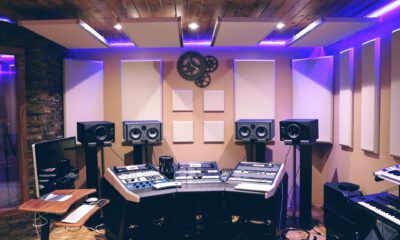
 Home Recording2 years ago
Home Recording2 years agoCan You Use Normal Speakers As Studio Monitors? The Simple Answer
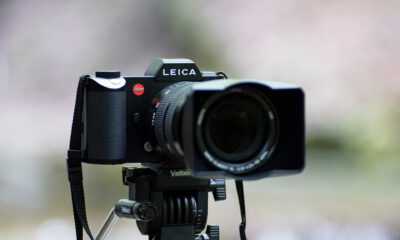
 Photography2 years ago
Photography2 years agoIs A Leica Worth It? (What you should know)
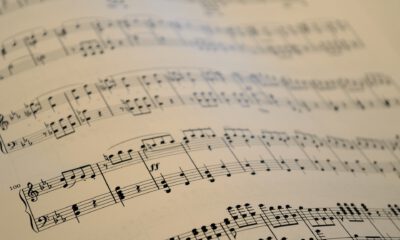
 Music Production2 years ago
Music Production2 years agoCan Piano Sheet Music Be Used For Other Instruments?
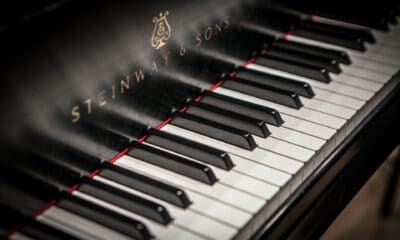
 Music Production2 years ago
Music Production2 years agoAre My Piano Keys Made Of Ivory? (How To Recognize It)

